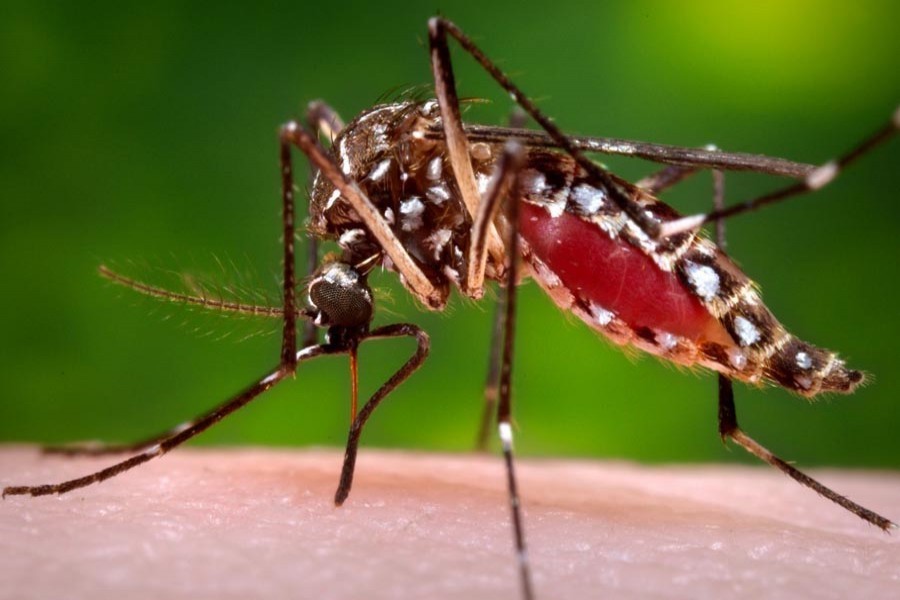Dengue's seasonal visitation in the capital has now become axiomatic ever since its first appearance here in 1999. Although the first cases of dengue fever were detected in Chattogram in 1996-97, the port city has not come under as epidemic an attack as that of Dhaka. This is for the first time that two other urban centres have also reported prevalence of the fever. In Dhaka, its outbreak has crossed all past records now. About a dozen people, including a physician, have died of the fever by now and if its higher incidence is any guide, more deaths are most likely to occur. Of particular concern is the fact that the anti-mosquito campaign in the capital almost totally failed because the mosquito killer spray was reportedly of no use. Now was the spray spurious or aedes, the vector of the fever, has developed resistance to the chemicals used for spray?
If the city corporations in Dhaka fail to give a tough fight against the tiny insect in the first place, the citizens here are bound to suffer. With the monsoon rain falling intermittently and at times quite heavily, ideal breeding grounds are created in the most unlikely places all across the city. After all, aedes mosquito lays eggs in clear water and when it rains, accumulation of fresh water is natural. Starting with rejected pots and utensils ranging from earthen to plastic as well as polythene bags and rubber tyres, there are innumerable such receptacles of various shapes and sizes to hold rainwater in this city. Proliferation of mosquitoes including aedes is the likely outcome in such a situation unless a massive campaign is launched to overturn or destroy such discarded receptacles.
Now that a legal notice was reportedly initiated by a family suffering dengue attack blaming Dhaka South City Corporation (DSCC) for its failure to control mosquito and the mayor has pledged to launch a fresh vigorous campaign against mosquito during his visit to the family, can the inhabitants expect a participatory cleaning drive as well as the corporation's extensive spray with effective mosquito killing agents? Both city corporation authorities have been blamed for not doing enough to kill the mosquitoes. Some even went as far as asking their resignation for their failure to control the tiny insect. A couple years back, immediately after the twin attacks of dengue and chikungunya, the campaign against mosquito was mostly effective.
The inhabitants of this city must accept the responsibility for the extent of degeneration the megalopolis has suffered. People are not particularly famous for their strong civic sense. In case of allowing no space for dengue breeding, the same is true. Where just a little care and effort could destroy the breeding ground of aedes, city people are found to be casual in their approach to the problem. They are not particular about removal of water accumulated in different places at home. Also aedes bites only at dawn and just before evening when the light fades or is hazy. If people can avoid aedes bites for about one and a half hours in the morning and about an equal time in the evening, they can keep dengue at bay. So in a way prevention is within their reach.


